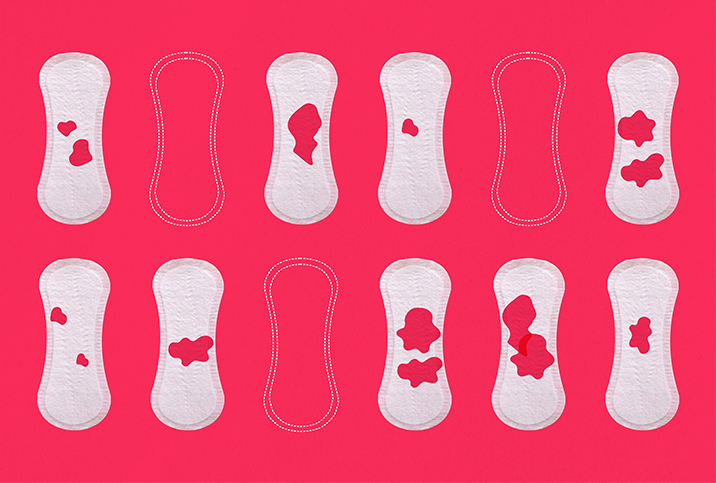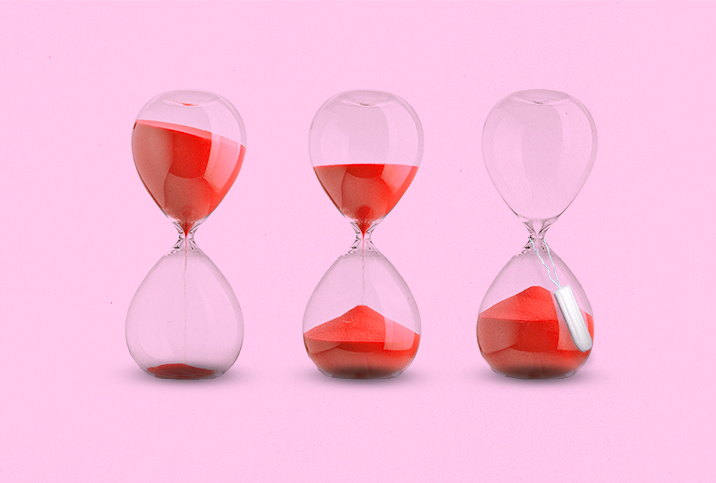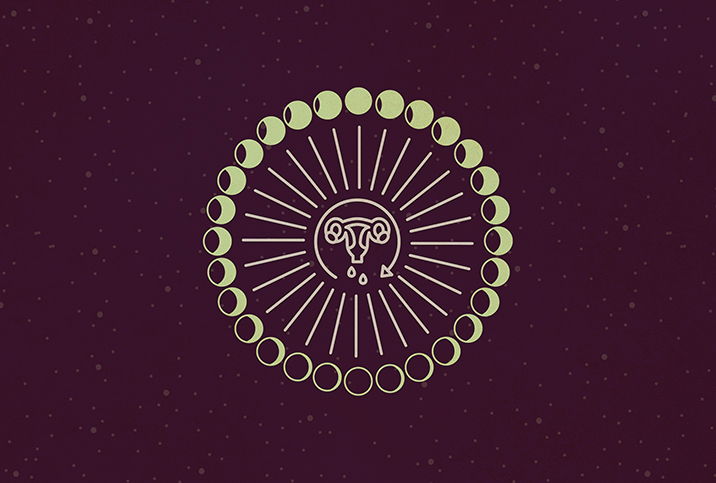From Puberty to Menopause, According to Two Worldviews

The heaviest menstrual flow, irregular cycles and hormonal swings often come at the beginning and end of fertility.
Sometimes, looking at a condition or situation from two perspectives can be enlightening. Western medicine refers to a system in which medical professionals aim to treat symptoms of a disease or condition, whereas Eastern medicine refers to less conventional treatments that focus on the whole body instead of just specific symptoms.
While these two worldviews often conflict, some Eastern practices, such as acupuncture and tai chi, can be used to complement Western treatment.
How do these two philosophies approach menstruation? We talked to the experts to find out.
Menstruation, according to a Chinese practitioner
New York City acupuncturist and Chinese medicine practitioner Tsao-Lin Moy attributes menstrual irregularity as one of many symptoms of a changing body.
Moy draws from a rich history of traditional Chinese medicine to provide another explanation of menstruation that complements Western medicine but may be unfamiliar to many.
"According to one of the oldest medical texts, the Yellow Emperor's Classic of Internal Medicine [from] 300 B.C., female development follows a seven-year cycle. At 7, kidney essence becomes full, teeth are renewed and her hair grows. At 14, fertility arrives. At 21, kidney energy is healthy and the wisdom teeth grow. At 28, the muscles and bones are firm and the hair reaches its greatest length," Moy said.
"At 35, there is decline; the face begins to wrinkle and the hair begins to fall," Moy continued. "At 42, the whole face begins to wrinkle and the hair begins to whiten. At 49, fertility blood dries up, menses stops and she no longer has children."
The "essence" that initiates menstruation is called "Tian Gui," or "heavenly water," Moy explained. This signals the transformation from girl to woman and coincides with the pituitary release of gonadotropin-releasing hormone, a special hormone that starts the changes in puberty, Moy said.
Irregular menstruation, according to a U.S. physician
Hormones are to blame for menstrual irregularity, explained Kecia Gaither, M.D., board-certified in OB-GYN and maternal-fetal medicine, and director of perinatal services at NYC Health + Hospitals/Lincoln in the Bronx in New York City.
"Both time frames—early episodes of menstruation or last episodes of menstruation—involve hormonal flux and irregular, erratic menses," she said. "When estrogen levels are higher in comparison to progesterone, the uterine lining thickens and builds. As such, this results in heavier bleeding."
Stress, a usual side effect of puberty and the menopausal transition, can cause period irregularity, too.
"A skipped period can also cause the uterine lining to build, such that when menstruation occurs, heavy bleeding ensues," Gaither said.
Hormones, puberty and the menstrual cycle
Gonadotropin-releasing hormone, follicle-stimulating hormone (FSH) and luteinizing hormone (LH) are essential for reproduction. FSH encourages the growth of ovarian follicles, which produce estrogen and progesterone and help maintain the menstrual cycle. LH regulates ovarian function and keeps the menstrual cycle working.
"Studies show that at least two years before puberty, ages 7 to 9, there are hormonal surges [that are] part of the developmental process from childhood to adolescence. This is called adrenarche," Moy explained. "By age 14, most girls reach menarche. In modern and Western countries, menarche starts sooner because of nutrition and environmental influences."
Adrenarche, which means "the awakening of the adrenal gland," is considered premature if it commences before age 8 in girls.
The yin and yang of menopause
While a simplification of traditional Chinese medicine theory, the body is understood as containing yin (the feminine) and yang (the masculine), and health is dependent on this balance.
"In simplistic terms, estrogen is more yin compared to progesterone and testosterone, which are more yang," Moy said. "As women age, their estrogen levels lower and there is more body dryness and loss of bone density, hair thinning [and] hot flashes."
We usually think of perimenopause as beginning around 45 to 50 years of age. Traditional Chinese medicine practitioners believe "the transition to menopause more accurately begins 10 to 15 years earlier, around 35 years of age," Moy said. "This also coincides with a decline in fertility and the increase in birth complications."
While the Western perspective doesn't often look at menopause as starting quite that early, it's true that estrogen and progesterone start to decline in a person's late 30s.
Universal life stages can be understood more holistically when we open ourselves to new perspectives. Western and Eastern understandings of medicine may augment each other, especially in understanding why the beginning and end of reproductive years bring about such intense menstruation.


















